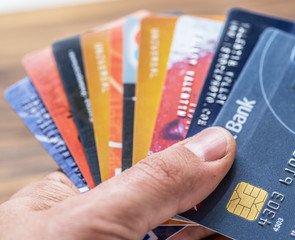
If you are being charged with credit card fraud in New Jersey you are likely facing some harsh penalties. It is important to understand the legal implications of a conviction and make yourself aware of the options available during your case. Contact a Bergen County criminal defense attorney to begin discussing your situation and forming a defense today.
Credit card fraud is a crime involving the use of stolen or fraudulent credit or debit cards. New Jersey state law recognizes several types of credit card fraud including the following.
Many actions can be charged as credit card fraud in NJ and a conviction will be accompanied by severe penalties.
Because credit card fraud can be detrimental to a victim’s life, the crime is taken quite seriously in New Jersey. The consequences of a conviction can be severe. Credit card fraud is generally charged as either a fourth-degree, third-degree, or second-degree indictable crime. (An indictable crime is a charge in New Jersey similar to a felony in other states).
The degree you are charged with will depend on many aspects of your case but especially the value of goods or amount of credit cards that were involved. For example, possession of less than 5 stolen credit cards with the intent to use them is typically charged as a fourth-degree crime, whereas credit card theft that exceeds $500 can be charged as a second-degree crime.
The penalties for a second-degree credit card fraud conviction are:
The penalties for a third-degree credit card fraud conviction are:
The penalties for a fourth-degree credit card fraud conviction are:
These are general guidelines for the penalties that credit card fraud convictions typically yield but the sentence you are issued will vary depending on the details of your case. Keep in mind that besides imprisonment and fines, a conviction can also result in penalties like probation, house arrest, mandatory community service, victim restitution, and more.
Because the penalties can be so harsh it is highly recommended that you obtain legal counsel from a skilled attorney. Contact a lawyer today to begin working on a defense for your case.
© 2024 The Law Office of Kevin T. Conway. All rights reserved.